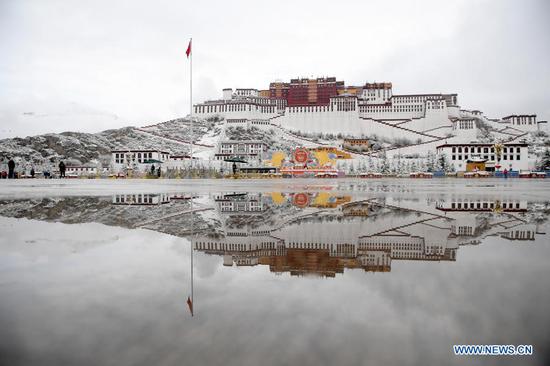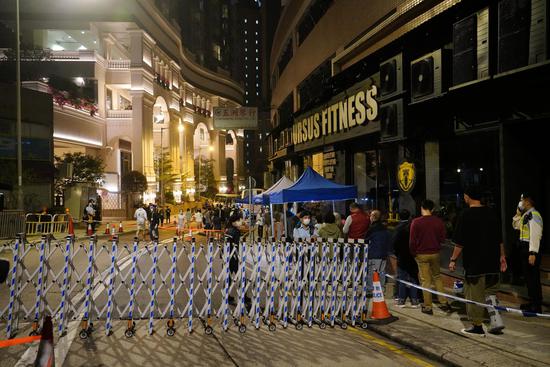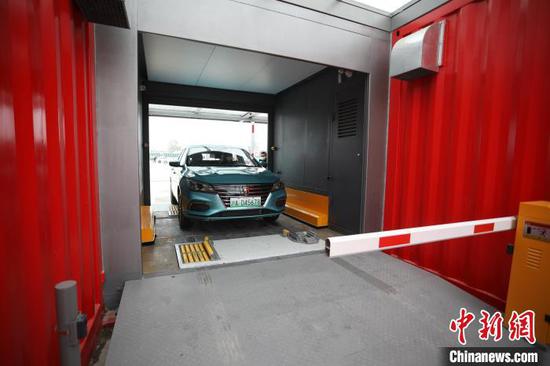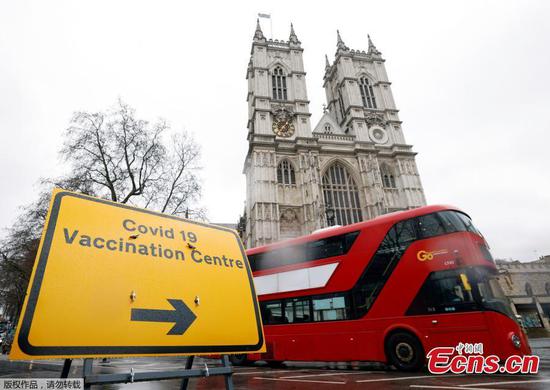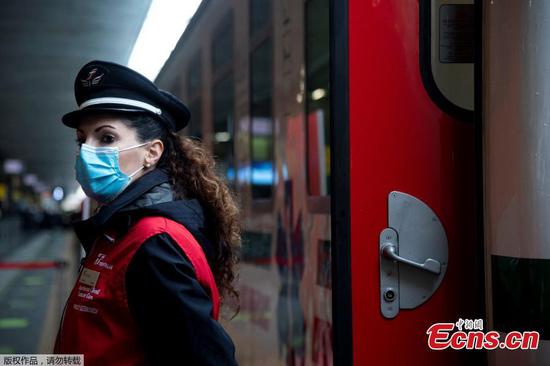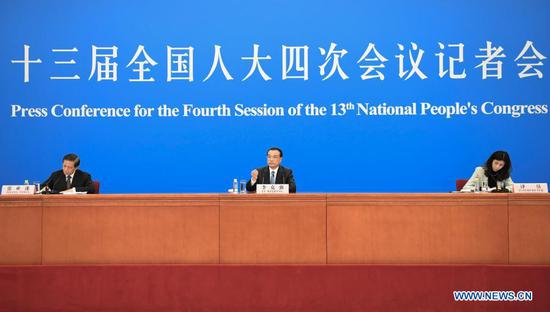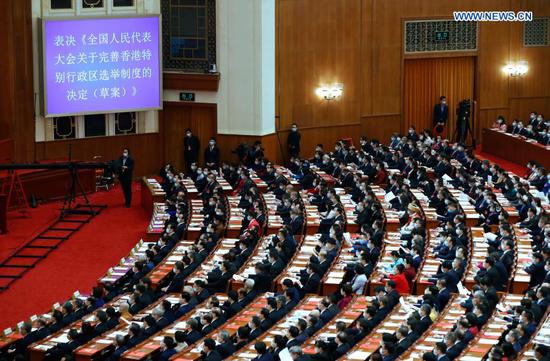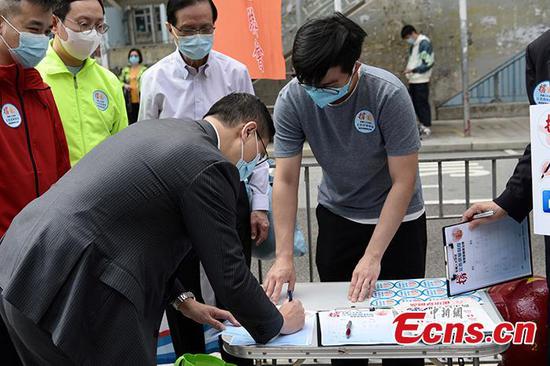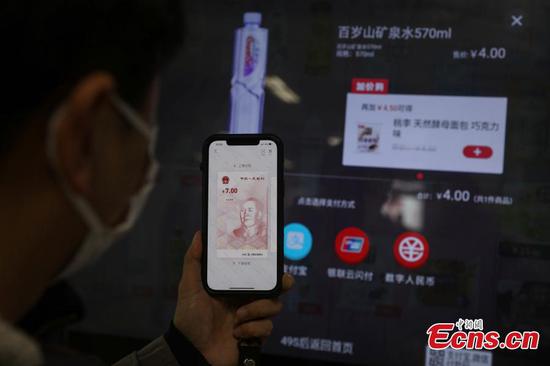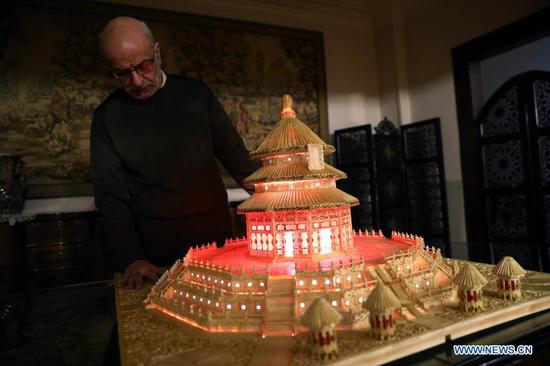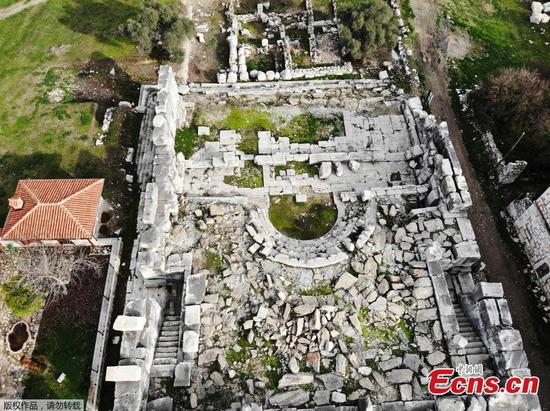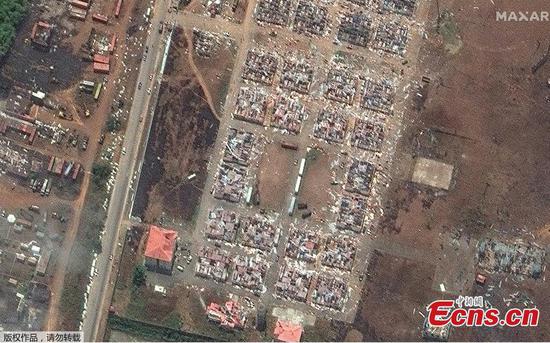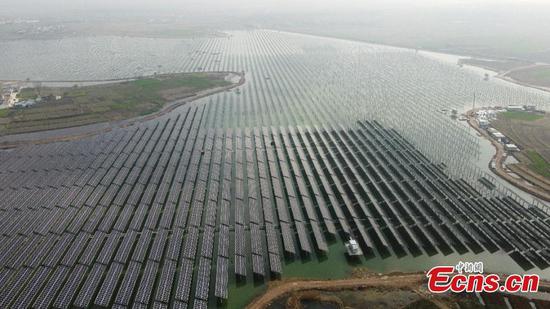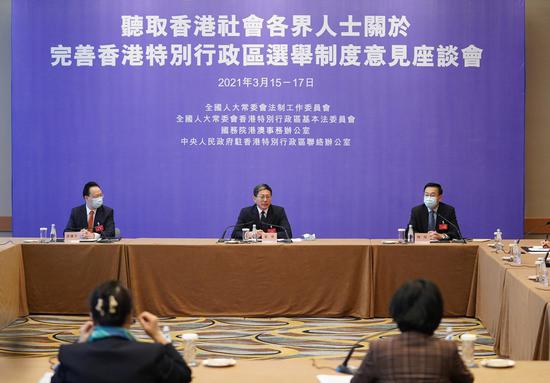
Zhang Yong (C), deputy head of the Commission for Legislative Affairs of the National People's Congress (NPC) Standing Committee, collects advice and suggestions on improving the electoral system of the Hong Kong Special Administrative Region (HKSAR) from the representatives of different sectors in Hong Kong, in Hong Kong, south China, March 15, 2021. (Xinhua/Lui Siu Wai)
Representatives from various sectors of Hong Kong on Monday gave their advice about improving the electoral system of the Hong Kong Special Administrative Region (HKSAR) at separate symposiums held by the central authorities' departments.
Many participants proposed to cancel the District Council's seats in the Election Committee, entrust the committee with the function of electing a relatively large share of Legislative Council (LegCo) members, and increase the number of subsectors of the committee for balanced participation.
For three days starting Monday, the Legislative Affairs Commission of the National People's Congress (NPC) Standing Committee, the Hong Kong and Macao Affairs Office of the State Council, and the Liaison Office of the Central People's Government in the HKSAR would solicit opinion and advice in Hong Kong through various forms including symposiums and interviews about implementing the decision by the NPC on improving the electoral system of the HKSAR.
Three meetings were held on Monday morning, with each attended by 15 representatives from Hong Kong.
Lo Wai-kwok, chairman of the Business and Professionals Alliance for Hong Kong, said the NPC's decision is imperative and timely.
As the social chaos in Hong Kong in recent years have caused great damage to the economy and people's livelihood, undermined "one country, two systems," and endangered national security, it is critical and urgent to improve the electoral system before the upcoming elections of the Election Committee, the LegCo and the chief executive in Hong Kong, he said.
Ng Chau-pei, president of Hong Kong Federation of Trade Unions, suggested that the District Council's seats in the Election Committee should be removed and the District Council should no longer participate in the election of the chief executive or the LegCo. The District Council's seats in the LegCo should be removed, too, he said.
Given the deteriorating working environment in the LegCo in recent years, entrusting the Election Committee with the function of electing a relatively large share of LegCo members will improve Hong Kong's democracy and enable Hong Kong to focus on developing the economy and improving people's livelihood, which is conducive to Hong Kong's long-term development, Starry Lee Wai-king, LegCo House Committee chair, said.
Ip Lau Suk-yee, chairwoman of Hong Kong's New People's Party, said the current LegCo still lacks full representation of Hong Kong's high-end financial industry and some key science and technological industries, and she hoped that the future Election Committee will make up the shortfall.
Efforts should also be made to increase the size of the Election Committee and optimize its subsectors and their rights so that the principle of balanced participation and Hong Kong's overall interests can be ensured, Ng Chau-pei said.
Ng said the share of the labor sector should be expanded as there are around 3.8 million workers in Hong Kong.
Wong Kam-leung, chairman of the Hong Kong Federation of Education Workers, suggested measures to create favorable conditions for patriotic education through improving the electoral system, so that Hong Kong's education sector can be pushed back on the right track.












